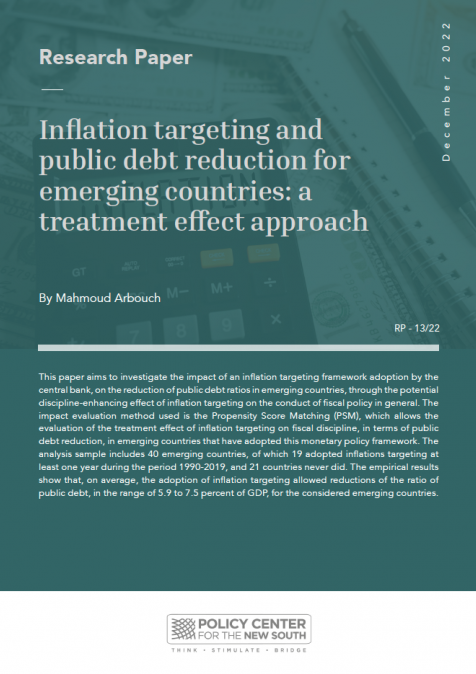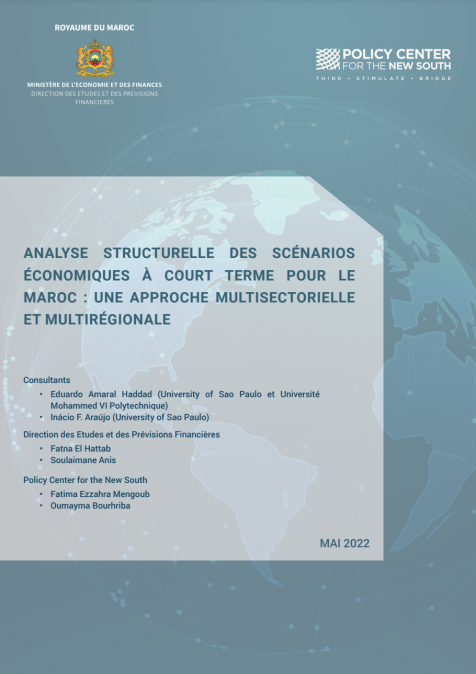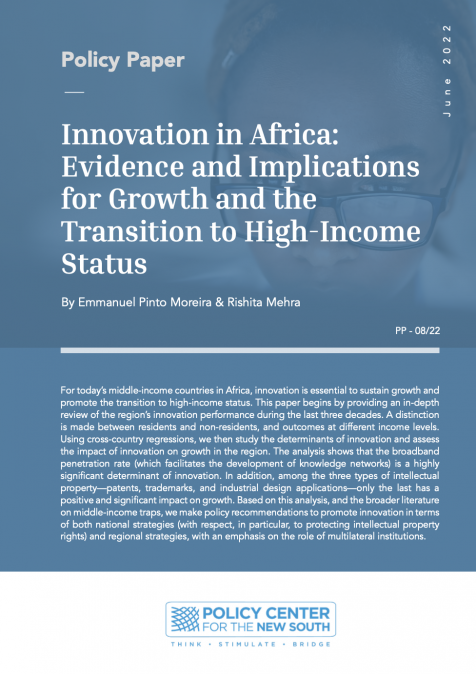Publications /
Research Paper
This paper aims to investigate the impact of an inflation targeting framework adoption by the central bank, on the reduction of public debt ratios in emerging countries, through the potential discipline-enhancing effect of inflation targeting on the conduct of fiscal policy in general. The impact evaluation method used is the Propensity Score Matching (PSM), which allows the evaluation of the treatment effect of inflation targeting on fiscal discipline, in terms of public debt reduction, in emerging countries that have adopted this monetary policy framework. The analysis sample includes 40 emerging countries, of which 19 adopted inflations targeting at least one year during the period 1990-2019, and 21 countries never did. The empirical results show that, on average, the adoption of inflation targeting allowed reductions of the ratio of public debt, in the range of 5.9 to 7.5 percent of GDP, for the considered emerging countries.








